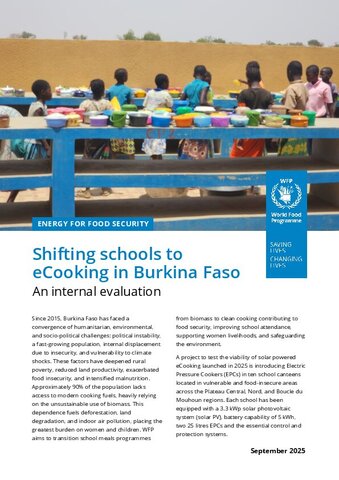
Around 90 percent of the population in Burkina Faso relies on biomass for cooking, contributing to deforestation, land degradation and indoor air pollution. This disproportionately affects women and children. In response, the World Food Programme launched a pilot project in 2025, introducing clean cooking - specifically solar-powered Electric Pressure Cookers (EPCs) in ten school canteens across vulnerable regions. Each school received solar photovoltaic (PV) systems, batteries and EPCs, with initial training provided to staff and cooks.
An internal evaluation showed that the project is having a positive impact so far: reduced firewood use, improved cooking efficiency and hygiene, safer working conditions, and better meal timeliness - which have increased school attendance and community interest. However, challenges include insufficient system capacity due to underestimated school sizes and lack of maintenance services. Insufficient cooking capacity means that some meals still need to be cooked with biomass. However, those cooked with EPCs are of better quality and reduce food waste. Focus groups also highlighted reduced workload and improved job satisfaction among cooks. The initiative shows promise for economic, environmental and social benefits. Scaling means addressing infrastructure gaps, maintenance training and system resizing, to fully realize the transformative potential.
